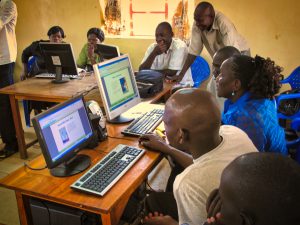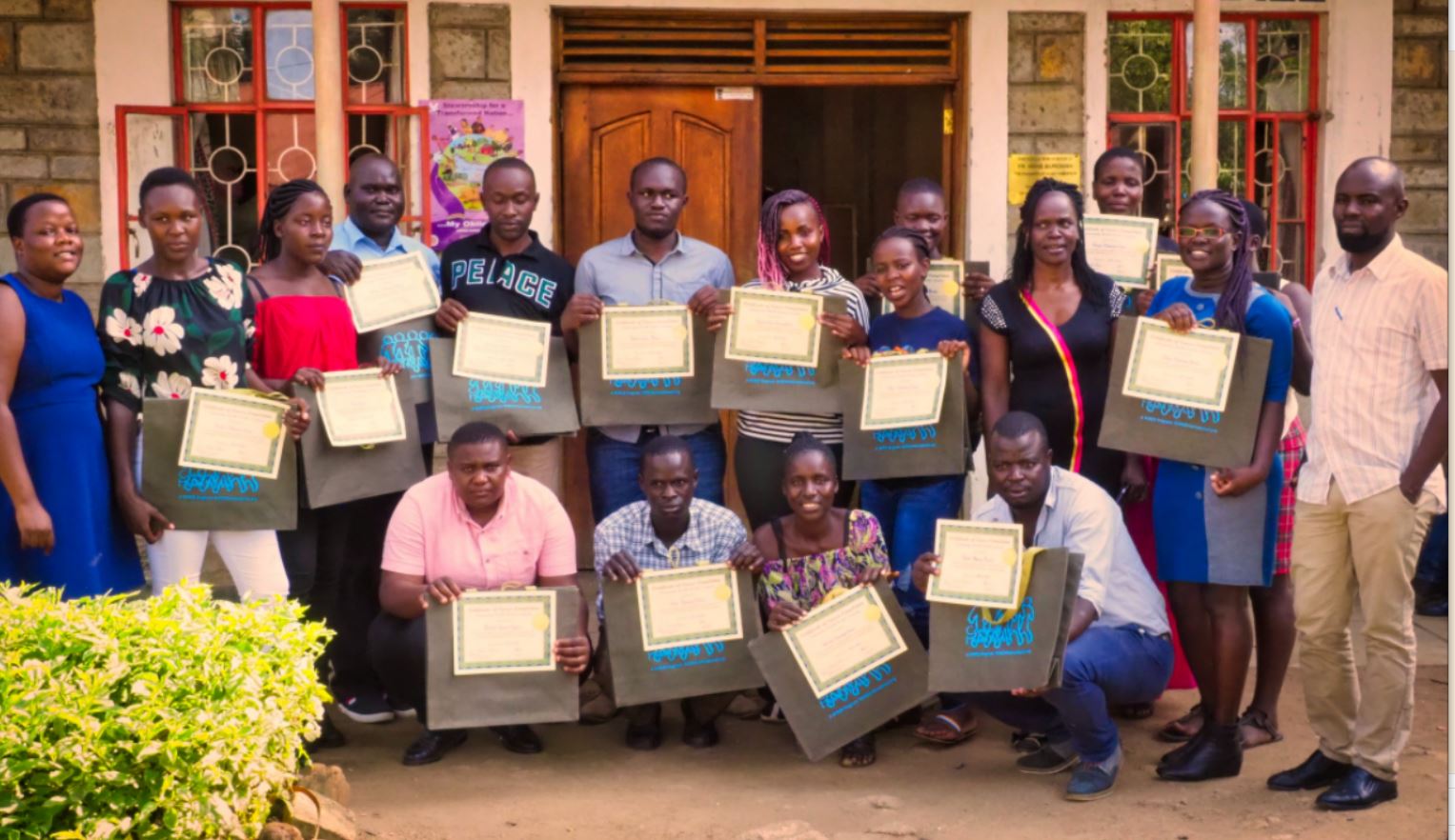Update on WiRED Community Health Workers in Kenya
CHWs Continue to Grow in Knowledge and Experience Despite a Challenging Year
By: Jessie Crowdy; Edited by Allison Kozicharow
WiRED International brought our Community Health Worker (CHW) Training Program to Kisumu, Kenya, in 2020. Since then, CHWs have been actively tending to the health of the populations they serve. As the unprecedented year of 2020 came to a close, one which brought a set of overwhelming health challenges for low-resource communities around the world, CHWs in Kisumu continued to work tirelessly to support those requiring care and successfully conclude their first operational year.
 Amidst a severe public health crisis, in December alone, the CHWs attended to 6,353 people in 11 Kenyan communities. Those seeking assistance look to the CHWs as beacons of hope and guidance and were attended for COVID-19 issues as well as a spectrum of other critical health-related topics such as labor and delivery, reproductive health, nutrition, water treatment, chronic diseases, tuberculosis and immunization. The wide range of health issues addressed by the CHWs is a testament to the knowledge they have gained and the trust they have earned in their communities.
Amidst a severe public health crisis, in December alone, the CHWs attended to 6,353 people in 11 Kenyan communities. Those seeking assistance look to the CHWs as beacons of hope and guidance and were attended for COVID-19 issues as well as a spectrum of other critical health-related topics such as labor and delivery, reproductive health, nutrition, water treatment, chronic diseases, tuberculosis and immunization. The wide range of health issues addressed by the CHWs is a testament to the knowledge they have gained and the trust they have earned in their communities.
 Disease prevention is key to public health, and we now have an important tool which is the COVID-19 vaccine to help stop the pandemic. One of the challenges now being faced, apart from the availability of the vaccine, is to train enough people to be able to administer the shots as effectively and quickly as possible. This poses a greater challenge to underserved communities in developing nations. To this end, WiRED will shortly offer a program to train CHWs to bring the vaccines to the communities, screen patients and administer COVID-19 vaccinations. CHWs will also be trained on how to monitor patients after the vaccinations and assist communities with any necessary follow-up. The health education and assurance WiRED’s CHWs bring to their communities means that they are ideal choices to carry out this vital and potentially life-saving work.
Disease prevention is key to public health, and we now have an important tool which is the COVID-19 vaccine to help stop the pandemic. One of the challenges now being faced, apart from the availability of the vaccine, is to train enough people to be able to administer the shots as effectively and quickly as possible. This poses a greater challenge to underserved communities in developing nations. To this end, WiRED will shortly offer a program to train CHWs to bring the vaccines to the communities, screen patients and administer COVID-19 vaccinations. CHWs will also be trained on how to monitor patients after the vaccinations and assist communities with any necessary follow-up. The health education and assurance WiRED’s CHWs bring to their communities means that they are ideal choices to carry out this vital and potentially life-saving work.
WiRED’s Training Program for
Vaccination Administration
Main outcomes expected
 The global process from manufacture to delivery of vaccines will be organized outside local communities. Then, local agencies and in rare cases outside medical teams will administer the vaccinations. Clearly, there will not be enough local doctors and nurses to deliver shots to hundreds of millions of people. CHWs, moreover, have a huge advantage over itinerant vaccinating teams because CHWs know the population and are trusted by the people. A trained CHW vaccination corps, directly involved in the dissemination of vaccine, will be the fastest and most effective way to vaccinate people in thousands of communities. Unless we vaccinate significant portions of the global population, COVID-19 will linger for years affecting all countries.
The global process from manufacture to delivery of vaccines will be organized outside local communities. Then, local agencies and in rare cases outside medical teams will administer the vaccinations. Clearly, there will not be enough local doctors and nurses to deliver shots to hundreds of millions of people. CHWs, moreover, have a huge advantage over itinerant vaccinating teams because CHWs know the population and are trusted by the people. A trained CHW vaccination corps, directly involved in the dissemination of vaccine, will be the fastest and most effective way to vaccinate people in thousands of communities. Unless we vaccinate significant portions of the global population, COVID-19 will linger for years affecting all countries.
 Development of WiRED’s training program for vaccination administration, based on World health Organization guidelines, is nearing completion and will be introduced for use in the field in mid-February.
Development of WiRED’s training program for vaccination administration, based on World health Organization guidelines, is nearing completion and will be introduced for use in the field in mid-February.


